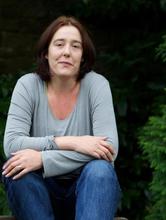
The Centre for Gender and Violence Research has always engaged within intersecting forms of oppression and inequality. Recently, that has involved ensuring that those who experience domestic violence and abuse within same sex relationships are heard and provided for. The recent events in Orlando remind us however, that the Lesbian, Gay, Bisexual, Trans and Queer (LGBTQ) community remains subject to threats and violence from outside.
The recent attack in Orlando was a homophobic hate crime.
The massacre of 49 people within an LGBTQ venue, the Pulse, in Orlando, Florida, has shocked us all. As such our thoughts and feelings go to those who lost loved ones during the attack and to the 53 who were seriously injured. Our thoughts also go out to wider LGBTQ communities who feel shocked and under threat not just from the crime itself, but from the response of others too it. Immediately the discussion in the media turned to one of gun control, Islamic terrorism, and radicalisation. In our western culture of ‘terror’ it is too easy for any of us, myself included, to think of any crime primarily within these lens.
Such is the strength of the terror discourse that only those events which fit the Islamic terrorist narrative are recognised. Owen Jones in his Sky News appearance was trying, I think, to make that point. This was first and foremost, a homophobic hate crime. The gunman chose to target an LGBTQ safe venue, because it was an LGBTQ venue. Richard Angell in his article talks about the implications of that for the LGBTQ community as a whole. The attack, horrific as it is, is also a reminder that the LGBTQ community still needs such spaces, and that they too can be violated.
Fundamentally that is shocking and frightening for the LGBTQ community. As such we need to show our solidarity with that community, to make more safe spaces where sexual orientation is more than tolerated, out of sight but genuinely accepted in our town, cities, and villages.
Media interviews with ex-work colleagues and family of the Orlando gunman shows people saying that they never heard him express threats to carry out such attacks, but they do report a catalogue of hate, homophobia, sexism, and racism. A wide range of people sought to remove themselves from his presence due to his hate. Yet when investigated by the FBI, their obsession with a certain type of terror clouded their judgement and the risks he posed to the LGBTQ community, and others, were disregarded.
Finally, the most recent media commentary has focused on whether the gunman was himself gay. That narrative is currently unfolding but irrespective of his own sexuality, this gunman deliberately targeted an LGBTQ safe venue to kill and maim LGBTQ people. All of us have a responsibility to seek to change society so that sexual orientation isn’t a cause for hate. Whether that hate is spoken or acted upon.
It is perhaps helpful at this difficult time to consider Andrea Dworkin’s (slightly changed) comment on the Montreal Massacre of 6th December, 1989:
“It is incumbent upon each of us to be the that wanted to kill. We must live with this honour, this courage. We must drive out fear. We must hold on. We must create. We must resist.” https://www.theguardian.com/world/2012/dec/03/montreal-massacre-canadas-feminists-remember
Dr Emma Williamson, on behalf of the Centre for Gender and Violence Research.


